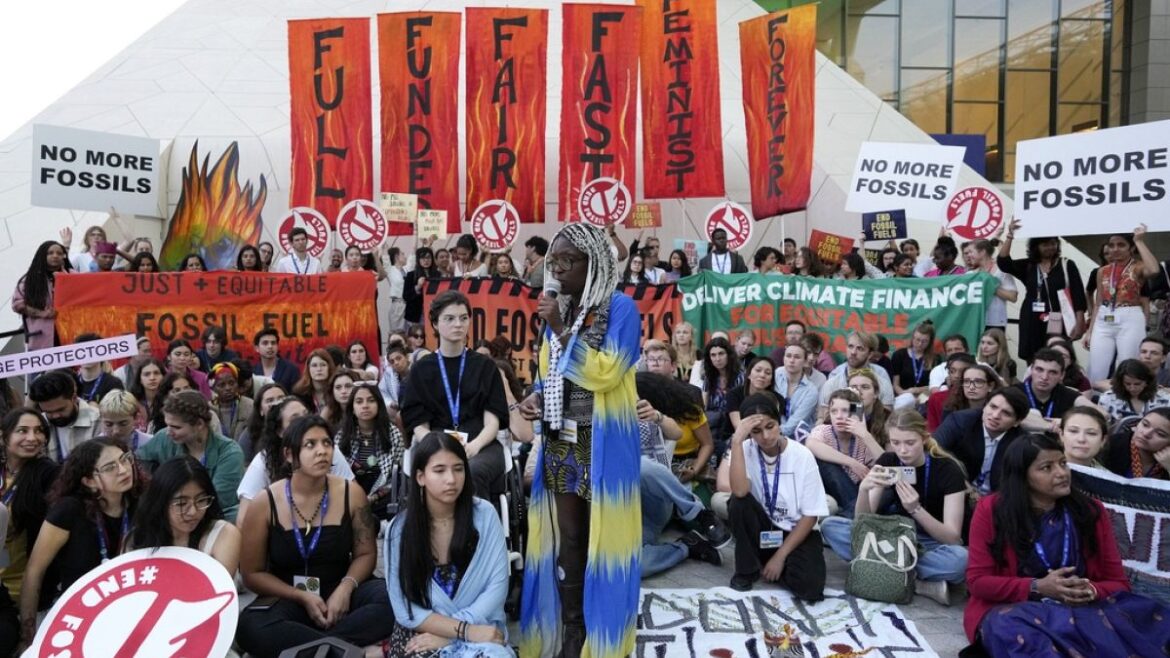“We must be proud of this historic achievement,” declared the President of COP28, the Emirati Sultan al-Jaber, on Wednesday, announcing the adoption of this text during the closing plenary session.
One day late, an agreement was finally reached at COP28 for the climate. The draft agreement, revealed early Wednesday morning by the Emirati presidency of COP28, was adopted during a plenary session held this Wednesday, December 13, 2023 in the morning. At the opening of the closing plenary session, delegates adopted the decision prepared by the United Arab Emirates, triggering a standing ovation and prolonged applause.
One day late, an agreement was finally reached at COP28 for the climate. The draft agreement, revealed early Wednesday morning by the Emirati presidency of COP28, was adopted during a plenary session held this Wednesday, December 13, 2023 in the morning. At the opening of the closing plenary session, delegates adopted the decision prepared by the United Arab Emirates, triggering a standing ovation and prolonged applause.
This is a decision “historic to accelerate climate action”declared Sultan al-Jaber, president of the UN conference.
“We are talking about fossil fuels in the final agreement for the first time”
The deadline set by the president of the COP, Tuesday at 8 a.m. (French time) had been exceeded without agreement. Negotiations therefore continued, against a backdrop of disagreement over fossil fuels.
The agreement finally reached calls on countries to “transition away from fossil fuels” and accelerate action “in this crucial decade, in order to achieve carbon neutrality in 2050”.
COP28 President Sultan al-Jaber said “proud” of the decision obtained. “We are talking about fossil fuels in the final agreement for the first time”, he congratulated himself, to the applause of the assembly. This is in fact the first decision of a UN climate conference to address the fate of all fossil fuels – oil, gas and coal. “We should be proud of this historic success and the United Arab Emirates, my country, is proud of its role in achieving this”he added.
The term “exit” was not retained
But the text does not reintroduce the term “exit” demanded by more ambitious countries but refused by producing countries, Saudi Arabia in the lead.
By choosing the term “transitioning away” (“transition out of”, “to move away”, ” give up” according to possible translations into French), the text no longer speaks of “phase-out” (“exit”) oil, gas and coal, a term that has for months become the banner behind which more than a hundred countries and thousands of NGOs have lined up.
In its most scrutinized article, the text under debate proposes to recognize “the need for a strong, rapid and sustained reduction in greenhouse gas emissions, in line with the 1.5°C trajectories and calls on parties to contribute to the following global efforts”a list of eight types of actions.
So far, the COPs have only adopted objectives of “reduction” greenhouse gas emissions, without explicitly addressing the fate of all fossil fuels, responsible for two thirds of emissions. Only one “reduction” coal was adopted at Cop26 in Glasgow, but no objective on oil and gas was ever adopted.
The subject emerged in the negotiations in the face of the acceleration of the consequences of warming, the failure of countries to maintain the 1.5°C trajectory, which is very threatened, and during the organization of the Cop in a rich oil and gas country.
In particular, the text calls for “triple global renewable energy capacity and double the global average annual rate of energy efficiency improvement by 2030”. Beyond this objective, the question of financing this transition, above all to help the most vulnerable countries, has not been resolved. This question of allocated resources should be at the heart of future discussions for the next COP, which will be held in November 2024 in Baku.



